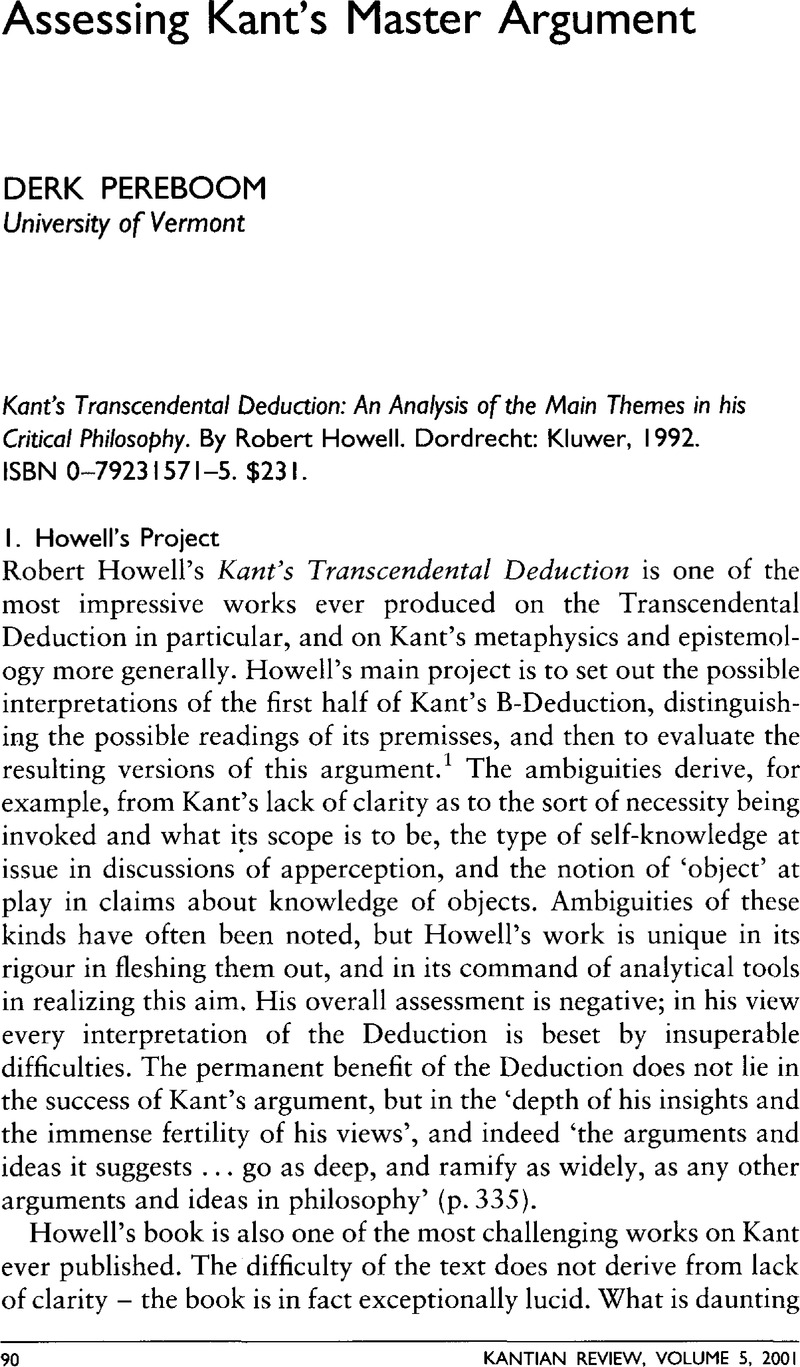Published online by Cambridge University Press: 25 March 2011

1 References to Kant, Critique of Pure Reason are from the translation by Smith, Norman Kemp (New York: St Martin's Press, 1965).Google Scholar
2 See my ‘Self-understanding in Kant's Transcendental Deduction’, Synthese, 103 (1995), 1–42.
3 Allison, Henry, Kant's Transcendental Idealism (New Haven, CT: Yale University Press, 1983), pp. 142–4Google Scholar; see also Guyer, Paul, Kant and the Claims of Knowledge (Cambridge: Cambridge University Press, 1987), pp. 133–9.CrossRefGoogle Scholar
4 Allison, , Transcendental Idealism, p. 143.Google Scholar
5 Ibid., p. 145. Richard Aquila also argues for the sufficiency claim; see his Matter and Mind (Bloomington, IN: Indiana University Press, 1989), pp. 159ff.
6 Allison, , Transcendental Idealism, p. 146Google Scholar; cf. pp. 27, 118–19, 135.
7 Howell emphasizes these passages in personal correspondence.
8 At A108 Kant says:
The original and necessary consciousness of the identity of the self is thus at the same time a consciousness of an equally necessary unity of the synthesis of all appearances according to concepts, that is, according to rules, which not only make them necessarily reproducible but also in so doing determine an object (Gegenstand) for their intuition, that is, the concept of something wherein they are necessarily interconnected.
9 Adams, Robert, Leibniz (New York: Oxford University Press, 1994), pp. 216–28.Google Scholar
10 Thanks to Robert Howell for excellent comments on a draft of this review.